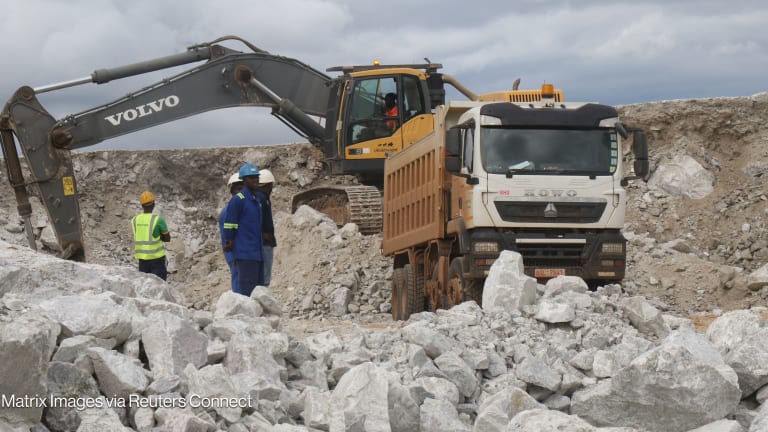
Pulling funding for hydrocarbon energy projects in Africa could backfire and risk stalling the continent’s progress, former U.K. Prime Minister Tony Blair warned Thursday.
Nigerian minister decries defunding of gas projects as inequitable
An environment official from Nigeria — which has Africa's largest natural gas reserves — says lower-income nations are held to a different standard for decarbonizing.
“If [high-income nations] attempt to limit development opportunities – for example, by ceasing funding for energy generated by gas, without making provisions for equally affordable alternatives – they risk condemning countries to continuing poverty and food insecurity,” he wrote in the foreword of a new report from the Tony Blair Institute for Global Change.
The move would also turn out to be counterproductive, he added, and is “likely to push African countries towards higher emissions as they identify alternative finance partners, who could turn a blind eye to damaging environmental impacts.”
The report, “A Just Transition for Africa: Championing a Fair and Prosperous Pathway to Net Zero,” maps out the key challenges that climate change poses to Africa’s development — and outlines recommendations for high-income countries to get their involvement right.
Blair pointed to the tensions that exist between carbon mitigation and Africa’s development needs. He challenged the idea of African countries “leapfrogging” the need for hydrocarbons by utilizing the continent’s generous sunshine to jump straight into renewable energy. This kind of pathway “will require a step change” in how high-income countries work with Africa.
The former prime minister wrote that “global climate action and the approach to net zero in Africa often fail to take into account the urgent need to develop and industrialise across much of the continent.”
“To be credible partners,” he said, high-income countries “must significantly increase levels of climate finance while equally considering how this finance is deployed, using it to support Africa’s vision for development and industrialisation as well as to mitigate carbon emissions.”
Blair also pointed out that high-income countries themselves developed in large part by exploiting their fossil fuel reserves, so they “must bear the greatest responsibility for cutting emissions and financing measures globally to adapt to the inevitable consequences of climate change.” The report warns against “kicking away the ladder” that such countries have already climbed themselves.
The African Development Bank projects that climate change could cost the continent $50 billion annually by 2040 and further decrease gross domestic product by up to 3% per year by 2050. This would put Africa’s economy at around 40% the size of its estimated potential, according to the Tony Blair Institute’s report.
“If [high-income nations] attempt to limit development opportunities ... they risk condemning countries to continuing poverty and food insecurity.”
— Former U.K. Prime Minister Tony BlairThe institute recommends that high-income countries better align with African countries on their development vision. “This could involve accepting that countries may need to make limited investments in fossil-fuel technologies while the alternatives remain too costly or impractical for them,” the report states.
The alternative would be to make a “legally binding commitment to compensate African countries for leaving those [fossil fuel] deposits in the ground and support them to industrialise without fossil fuels,” it adds. Otherwise, high-income countries would need to commit to curtail their own fossil fuel production further.








